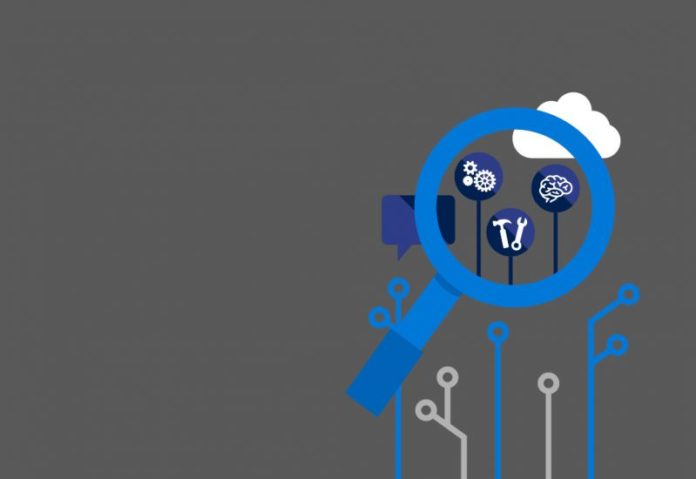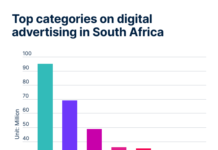Artificial Intelligence (AI) is powered by data. Not just the data that we as marketers have traditionally been accustomed to using such as data for sales, market share, site visits, link clicks, engagement rates etc.
AI is now being used to tap into, and make sense of, a massive amount of unstructured ‘big data’. When we talk about AI in marketing, we’re talking about AI solutions that are able to process and interpret big data in ways humans cannot.
AI is therefore enabling marketers to make better-informed decisions by making it easier to derive insights from big data, helping them expand customer engagement, optimise operations, and improve offerings. As we accelerate into this new and exciting data-driven AI-enabled future, our marketing capabilities, our effectiveness, and our competitive advantage, all relies on the extent to which we can leverage and act upon all the data available to us.
AI can support a more customer-centric, personalised approach to marketing. As in the previous era of mass marketing, a marketer’s main goal was to determine how best to group audiences into similar segments, based on insights about their shared needs and characteristics. AI is now helping us go beyond mere segmentation, enabling us to create hyper-personalised campaigns, all in real time. In fact, 58 per cent of businesses are confronting their most demanding marketing problems with AI by prioritising personalised customer care.
As a result, consumers are not bombarded with information that is irrelevant to their interests or needs. Marketers will, on the other hand, increase their productivity and efficiency.
Core elements involved in AI-driven marketing strategy
Traditionally, marketers construct their strategy according to the Awareness, Interest, Desire, Action (AIDA) model; modern marketing takes this model a step further. In order to truly get the most of a modern marketing strategy, marketers need to take into account: data, talent, tools and partners.
For example, AI helps marketers leverage customer data using tools like machine learning to anticipate the customer’s next move and improve the customer journey. A tool like Microsoft Dynamics 365 AI for Market Insights allows marketers to gain insights into their brands, customers and competitors using AI. This means they can stay on top of market trends as they unfold in social conversations and web searches and respond to customers faster.
Then, they need the right talent to mine and interpret the data. Upskilling marketers to incorporate new technologies like AI will be very important as we head further towards the digital revolution.
Finally, it is imperative that marketers adopt the services of a trusted technology partner who can tailor solutions according to their needs. The tools are just a starting point. The technology partner should be able to match your needs to the tools they provide.
The use of AI to humanise a brand
Marketing, at its very core, remains a storytelling function. Although technology gives us the ability to automate processes and draw insights from big data, it still cannot create evocative, beautiful stories or generate authentic interactions with customers. Customers are still human, not machines, and years and years of marketing experience has taught us that humans crave authenticity from brands.
As modern marketers, we should leverage AI as an extension or augmentation of ourselves, while using the insights garnered from big data sets to give us both a quantitative and qualitative perspective, and then determine the right stories to tell to target the emotional quotient of our customers.
Ethical and moral considerations for marketers and advertisers
A consumer privacy study by TRUSTe/NCSA found that 92 per cent of online customers cite data security and privacy as a concern. While, according to a report published by the Chartered Institute of Marketing, 57 per cent of consumers don’t trust brands to use their data responsibly. It’s clear that in the age of AI, trust is the most important ethical and moral consideration for marketers to be cognisant of. Customers want to know that the companies they do business with have trust as their most important core value and guiding principle.
AI needs to be built and used in a way that earns trust, and that AI systems need to be designed with protections for fairness, reliability and safety, transparency and accountability, privacy and also be inclusive. The principles of verification, careful design and development practices, along with advances in AI, can take on these new challenges.
POPI/GDPR in marketing and advertising
GDPR and other data protection regulations like POPI are a great opportunity for marketers. Under GDPR for example, marketers need explicit consent to use a customer’s personal data. This allows marketers to gain insight into each individual’s interests and provide them with tailored information that they want to receive. GDPR also helps marketers maintain transparency. This is important because as mentioned above, many consumers cite security of their personal data as a concern.
Digital transformation: a threat or an opportunity for advertisers and marketers?
This is an opportunity, not a threat. AI definitely won’t replace the role of marketers. It will simply allow for marketers to adapt in order to work in tandem with these powerful AI tools. We believe that with AI, there’s a huge opportunity for machines to augment (not replace) people’s capabilities. Companies need to be committed to creating and expanding access to the skills needed to fulfil the promise of AI as well as design technology that complements rather than substitutes human labour. Working with machines, humans can drive better business outcomes.
The role of modern marketing in the digital transformation journey in the MEA region
The Middle East is a hotbed of technology and innovation. Africa is also ripe for opportunity, with a growing middle class and a huge increase in smartphone penetration. In fact, it’s expected that by 2020, half of all African adults will have a smartphone. The large youth population in the MEA region is also a fantastic opportunity for marketers because most of these youth frequently interact with brands through digital platforms.
A shift towards a human-focused and customer-centric marketing strategy
There is a need to refresh marketing strategies to make them more human focused and customer-centric. This transformation required an innovative, new marketing strategy because our traditional marketing methods could no longer compete. Based on data analysis and insights, we worked hard to reposition ourselves as a human brand, which we believe is key to the success of any marketing campaign.
This can be done by simplifying the structure of marketing efforts to being more outcome focused, relevant to all partners and scalable. Strategy should offer personalised content and customer experiences; introducing the company’s culture into the marketing culture; creating a more aligned and connected sales and marketing experience; telling a story and educating our customers on specific verticals or industries; tracking and analysing the entire purchase journey to improve ROI; and lastly taking care of our customers by forging life-long relationships.
MICROSOFT www.microsoft.com










